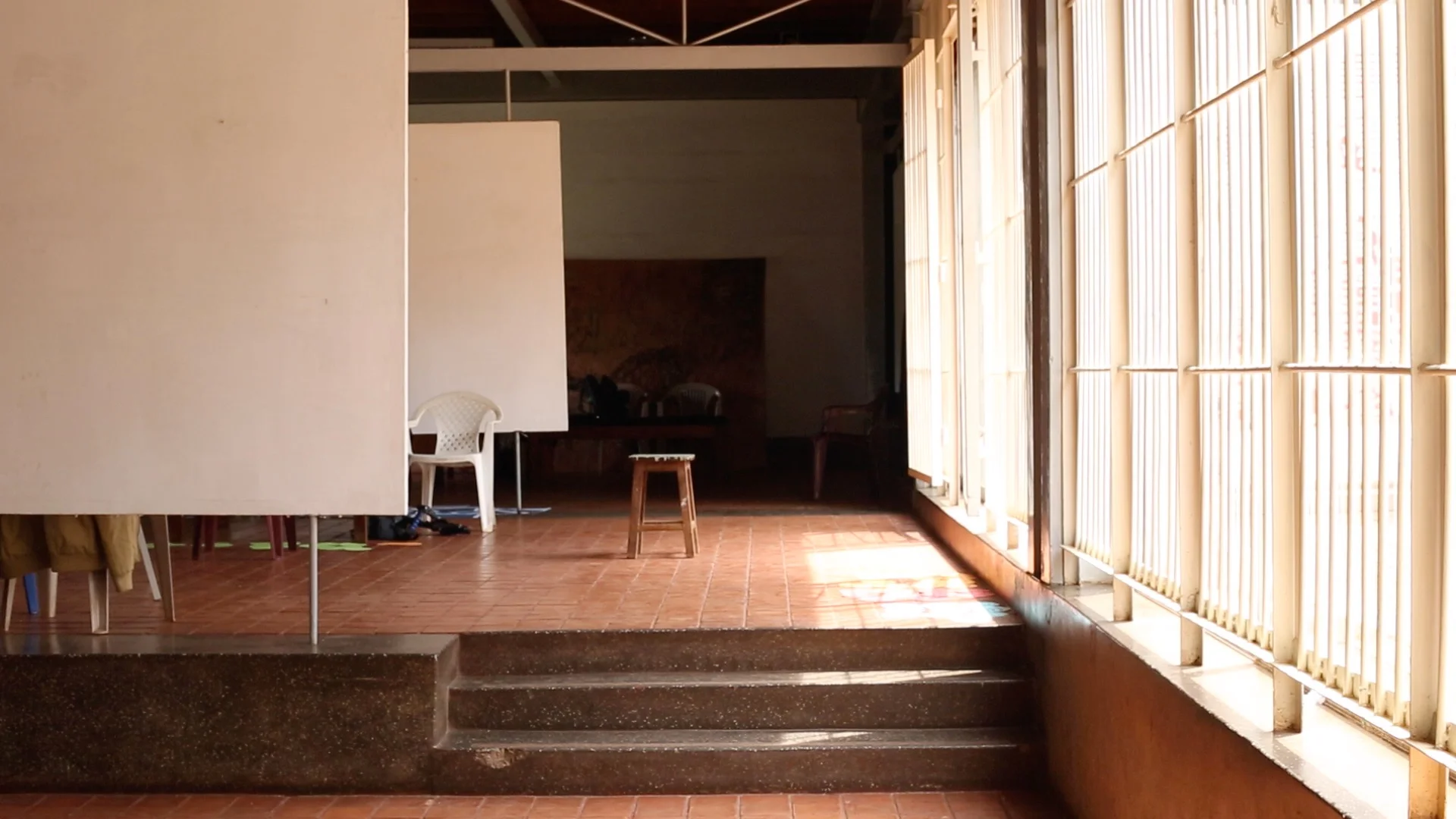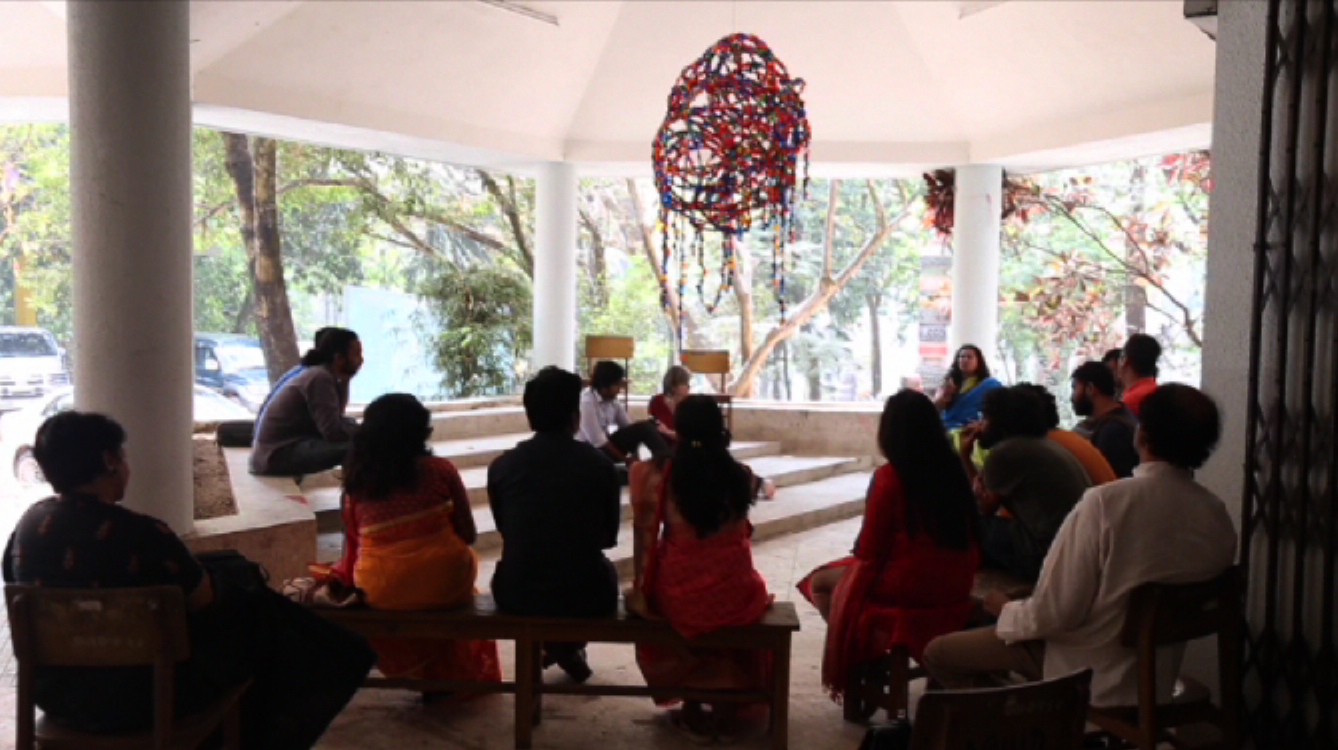Background
This network has developed out of a partnership between the Centre for Applied Human Rights (CAHR), the University of York and ActionAid, a leading development INGO, focusing on rights-based development alternatives. Additional partners in the network now include the Centre for Modern Studies at the University of York, the University of Chittagong Fine Arts Institute and the University of Makerere School of Languages, Literature and Communications, Jog Art Space, Pica Artist Led Studios.
Governments and international organisations now recognise the importance of culture and artistic expression in contributing to and enabling sustainable development. There is also increasing recognition of the role of art and local cultural forms in unlocking development dilemmas, and in speaking truth to power in arbitrary political environments. Cultural forms present alternative visions of personhood, dignity, rights and histories that can play a role in reframing international development agendas, expanding civic space and reimagining civil society.
Global poverty levels remain unacceptably high despite decades of aid. The Sustainable Development Goals (SDGs) open space for alternatives to emerge to the mix of neoliberalism and charity that often characterises development policy. There are many examples of communities doing development in a way that puts more emphasis on locally-informed rights cultures and/or approaches combining local and global elements that do not conform to standard development scripts. Such alternatives can and should inform the implementation of the SDGs. Development alternatives is understood to mean the diversity of practice and thinking that offers an alternative to mainstream development approaches e.g. neo-liberal, service delivery, aid-centred, hierarchical and entrepreneurial, in particular by bringing in approaches and voices rarely heard in development debates and practice.
The network takes an interdisciplinary approach to documenting examples of alternatives and testing whether creative methods, such as storytelling, collaborative arts activities and participatory arts based methodologies, can generate alternative political imaginations and articulate development alternatives. An overarching aim of the network activities and research has been to expand the space to think together, and make room for a diverse group of people to imagine and deliberate alternative understandings of development.
The project activities reflect the diversity of actors and perspectives involved in the production of these alternatives, ranging from; the production of fictional film to the collection of audio visual evidence; an anthology of the political imagination to an activists toolkit; storytelling workshops to team archival fieldwork; and landscape happenings, street festivals and museum exhibits. All designed to bring people together in an atmosphere of open experimentation and collaboration, and disrupt the usual performances and languages used to understand development and human rights.
A short film about the first network workshops describing the Creative Activism and Development Alternatives approach.
iii.
The cartographer says
no –
What I do is science. I show
the earth as it is, without bias.
I never fall in love. I never get involved
with the muddy affairs of land.
Too much passion unsteadies the hand.
I aim to show the full
of a place in just a glance.
iv.
The rastaman thinks, draw me a map of what you see
then I will draw a map of what you never see
and guess me whose map will be bigger than whose?
Guess me whose map will tell the larger truth?
- The Cartographer Tries to Map a Way to Zion, Kei Miller
research and projects
Art, Activism and Archive
Centre for Applied Human Rights, University of York, AHRC Follow on Funding, 2019-2020
In partnership with the University of York’s Centre for Modern Studies, Makerere University School of Languages, Literature and Communications, and Chittagong University Institute of Fine Arts a team of artists, activists and academics have been working on opening up new dialogues through artist residencies, creative labs and storytelling workshops, as well as researching and producing alternative versions of the cultural archive in Uganda and Bangladesh. The project residencies, exhibitions and workshops were supported by network artists, academics and activists from the Ugandan women’s writers federation Femwrite, artist led studios Pica Studios in York, Jog Space in Chittagong, the National Railway Museum Archive, the Borthwick Institute of Archive, the Makerere University Art Gallery and Margaret Trowell School of Industrial and Fine Art (MTSIFA), the Uganda National Museum, and Jahangirnagar University Performing Arts Department performing artists, Action Aid International, Action Aid Bangladesh, Action Aid Uganda and the Global Platform Bangladesh.
Creative Activism: Art and Development Alternatives
Centre for Applied Human Rights, University of York, AHRC/GCRF Network Grant, 2016-18
The project developed a researcher-activist-practitioner network to explore the ways in which art and creative activism can contribute to efforts to understand and enact development alternatives. Lead partners in the research were the Centre for Applied Human Rights at York University and the international federation for social justice, Action Aid, both interested in how human rights based alternatives to development can be articulated and applied in practice.
Pushing Back: Supporting Organisations and Movements in Contexts of Shrinking Civic and Democratic Space
Centre for Applied Human Rights, University of York, GCRF ESRC Impact Grant, 2018-19
An early finding of the development alternatives research is that the imaginative space to think about alternatives is affected by political and civic space – if the latter is under attack, the former suffers too. The crack-down on civil society is a global phenomenon, which has dramatically affected the work of development and environmental activists in many parts of the world. Activist and artists in both Bangladesh and Uganda identified shrinking civic space as a pressing priority. This project documented concrete ways of pushing back against shrinking political and civic space and shifted the emphasis from reactive responses (such as protection facilities for activists), to a proactive pushback and the identification of solutions and alternatives.
The impact grant supported the collection of nine audio visual case studies that documented how human rights defenders partnering with Action Aid have been successfully pushing back against shrinking civic space in nine different countries; Bangladesh, Guatemala, Kenya, Mozambique, South Africa, Tanzania, Uganda, Zambia and Zimbabwe.
The case studies of human rights pushback can be found here, and the research working paper describing the project findings has been published on the Human Rights Defenders Hub.
Political Forms
Centre for Modern Studies, University of York, AHRC, 2017-2018
Philosophers and theorists of all persuasions have reflected on the relations between the creative imagination of writers and artists and political circumstance. Yet it is often difficult to apprehend the changing political scope of literary and artistic forms, and it is often difficult to apprehend the contexts in which some types of work have come to be categorised as political interventions and others have been perceived as devoid of political currency.
What is the line that separates the political work from the apolitical work? In what circumstances have artistic hopes and ambitions become invested with political significance? In what circumstances have modern art forms been perceived as politically transformative?
The aim of this research was to bring together perspectives garnered from the sociology of art and literature, critical theory and political history, in order to invite a reflection on the theoretical and methodological positions that have nourished debate about the legibility of political forces and the capacity of experimental visual, performative and literary strategies to challenge the remit of political affirmation. The research examined some of the rich literature addressing the relation between art and politics, through a range of reflections on the documentation of political history, the role of the archive, the many nuances of political activism, and the long history of marginal forms such as the manifesto, the pamphlet, the petition and the radiophonic broadcast. As such, the aims of the project were to open up a reflection on the models of thought that underlie categorisations of political literatures and art forms, and to generate a discussion of the intellectual debts that underlie contemporary discussions of political efficacy.
Follow up…
ARCTIVISM
The Centre for Applied Human Rights (CAHR), through a grant from the Open Society Foundations, is supporting activists and artists across the world responding to the outbreak of Covid-19 and its implications for human rights defenders, activism, and shrinking civic and political space. Many governments have used COVID-19, and their response to the virus, as a cover to crack down on political opposition and civil society, as well as human rights defenders and activists. At the same time, the emergency has bred new responses and new forms of both local and global solidarity.
CAHR recognises that collaborative endeavours between activists and artists have the potential to provide innovative responses to the current COVID-19 emergency, whether in a reactive, therapeutic or imaginative form.
The project has funded 26 projects from 21 countries in Southeast Asia, South Asia, the Middle East, Africa, South and Central America, the Caribbean and Europe. The funded projects cover repressive measures introduced by states in lockdown (global, India), environmental issues (Malwai, Brazil), women's rights (Mexico, Turkey), workers rights (El Salvador, Philippines), migrant and refugee rights (Greece, India, Indonesia), and indigenous rights (Peru, Brazil).
Partnerships
Funding
Funding for this research has been secured from the following sources:
White Rose DTC ESRC Collaborative PhD Studentship involving CAHR and ActionAid (2016-2020).
Creative Activism: Art and Development Alternatives (AHRC GCRF Network Grant, 2016-18).
Pushing Back: Supporting Organisations and Movements in Contexts of Shrinking Civic and Democratic Space (GCRF ESRC Impact Grant, 2018-19).
Political Forms (Centre for Modern Studies, University of York, AHRC 2017-2018)
Art, Activism and Archive (AHRC Follow on Funding, 2019-2020)




